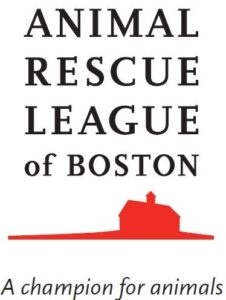S. 2820: Banning the retail sale of dogs, cats, and rabbits in new pet shops
MSPCA Position: Support
Sponsors: Senator Patrick O’Connor; Representatives Natalie Higgins and Kimberly Ferguson
Status: Released favorably from Joint Committee on Environment and Natural Resources. Referred to Senate Committee on Ways and Means
Why is this legislation needed?
Pet shops typically acquire their dogs and cats from inhumane commercial breeding facilities, often called “puppy mills” or “kitten mills.” Pet stores are a preferred sales outlet for puppy mills because they allow the cruelty at the mills to remain hidden from consumers. This bill prohibits the sale of dogs, cats and rabbits from new pet shops unless the animals come from shelters or rescue organizations.
This legislation does not prevent consumers from acquiring one of these animals from a responsible breeder or a shelter or rescue organization. Further, it does not prohibit a pet shop from partnering with a shelter or rescues to provide animals in their store. California, Maine, Maryland, Illinois, New York, Oregon, Vermont, and Washington have similar state laws. There are also more than 400 municipalities nationwide—including 15 in Massachusetts: Arlington, Attleboro, Boston, Brookline, Cambridge, Holliston, Lenox, Lexington, Marshfield, North Adams, North Andover, Pittsfield, Plymouth, Springfield, and Stoneham—that have passed laws prohibiting the sale of commercially-raised dogs and cats in pet stores. New York passed their measure in 2022 and there is concern among neighboring states that those businesses may move across the border when their law takes effect at the end of 2024.
Where do pet shops get their animals?
While pet stores may claim that they obtain animals from small-scale, humane breeders, the reality is that pet stores cannot obtain dogs from responsible breeders because responsible breeders simply do not sell puppies to pet stores—responsible breeders want to meet their puppy buyers in person. Furthermore, ninety-six percent of the Codes of Ethics of the National Breed Clubs, which represent all 197 dog breeds recognized by the American Kennel Club, prohibit or discourage their members from selling their dogs to pet stores. Thus pet shops almost always obtain their animals from commercial breeding facilities.
Although commercial dog breeding facilities are inspected by the USDA under Animal Welfare Act (AWA) regulations, the standards of care are very low. USDA standards allow commercial breeders to keep dogs in cramped, stacked, wire cages for their entire lives. The USDA does not require that dogs be regularly let outside of their cages for exercise, nor does it mandate socialization. Dogs can be kept in extreme temperatures for prolonged periods of time. Females are bred as early and often as possible and personnel without veterinary training often perform surgical births. Breeders are not required to vaccinate dogs from many highly infectious deadly diseases or to provide regular veterinary care. Puppies are taken from their mothers at very young ages, exposing them to a range of behavioral issues, and because puppy mill dogs are often overbred or inbred, they frequently suffer from health and genetic disorders. When puppy mill mother dogs are no longer able to reproduce, breeders often abandon or inhumanely euthanize them. Thus, even if a commercial breeder complies with all USDA requirements, a breeder can keep animals in extremely inhumane conditions.
Learn more about puppy mills and the puppy mill/Massachusetts connection.
How does this legislation impact consumers?
Animal organizations regularly receive complaints from Massachusetts consumers who have spent thousands of dollars in veterinary bills caring for their sick pet store puppies. Massachusetts families deserve better than unknowingly supporting the puppy mill industry and buying sick or behaviorally challenged puppies.
An examination of federal documents and Massachusetts Department of Agricultural Resources records demonstrated that Massachusetts pet stores have sourced puppies from some of the largest puppy mill brokers in the country. Brokers are middlemen dealers who pick up young puppies from mills, cage them on semi-trucks with numerous other puppies, many of whom are sick, and transport them across the country to be sold in pet stores. By buying from brokers instead of directly from breeders, pet shops make it very difficult, if not impossible, for consumers to find out where the animals come from. This lack of transparency, particularly when so many pet store animals are sick or behaviorally challenged, is a significant consumer protection issue.
Too many families are unable to afford the sudden and unexpected veterinary bills that often accompany animals sourced from mills and have to make the choice to relinquish their pet animal to a shelter or rescue organization. A study in the Journal of the American Veterinary Medical Association concluded that pet shop dogs are more likely to exhibit aggression, inappropriate elimination, biting, and other behavioral problems, all of which are common factors leading to the surrender of a dog.
Most Massachusetts families already adopt from shelters and rescues or buy from the network of responsible breeders, so restricting puppy sales in pet stores will still allow consumers to obtain the dog of their choice. While some might seek out puppies from other puppy mill sales outlets, such as the internet, there is no evidence that regulating pet stores drives more people to these sources.
What about pet shops who claim they do everything right?
Pet stores selling commercially-raised puppies adhere to an outdated and socially unacceptable business model and are outliers in their own industry. Of the top twenty-five pet store chains in the nation, only one sells puppies. The others are thriving by selling products and offering quality services, such as grooming, training and boarding. They also partner with shelters and rescues to hold adoption events at their stores, saving animals’ lives and driving more consumers into their stores to buy all the supplies a new canine family member needs.









